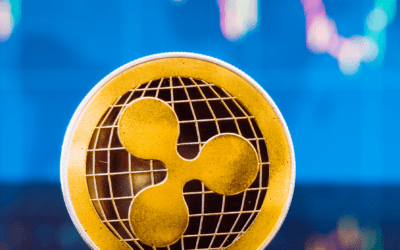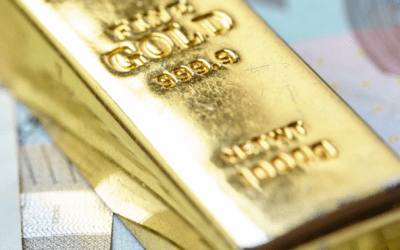19th century tycoon Baron Rothschild is widely credited with saying “the time to buy is when there’s blood in the streets”. And Rothschild took his own advice. In fact, he made a mint more than once by buying panic – the oldest contrarian investing strategy in the book.
“Buying panic” is, of course, quite different from “panic buying”. I’m not talking about stocking up on water as a hurricane is about to make landfall; I’m talking about well thought out contrarian investing strategies that allow you to make money when “blood is in the streets”.
Years ago, I read Jim Rogers’ book Adventure Capitalist; it’s still one of my all-time favorite business books… so much so that I’m now reading it again.
In Advenure Capitalist, Jim Rogers talks about markets no one else would have touched at the time. He talks about investing in Turkey at a time when the European Union kept kicking the can of Turkish ascension down the road.
Now, Turkey could care less about being in the EU.
He also talked about being a fan of China. I recently read an interview with Jim Rogers where he said he was a big investor in the Mainland in the late 1990s and again in 2005 and 2008.
I also am a big fan of investing in China and tend to agree with the general investing strategies of many Chinese, who favor investing in gold and finding stores of value. Too many Americans don’t understand just how inherently anti-government most Chinese are. Unlike the sheep in The Land of the Free, the Chinese know just how bad government is and many invest appropriately.
Why contrarian investing?
While I spend much of my time these days sharing offshore intelligence with you, I am at the core an entrepreneur and an investor. Make that a contrarian investor.
In fact, I’m a contrarian overall. Who else do you know who makes a point to wear suits everywhere?
While the Chinese don’t take the media at face value, many westerners do. I’m not talking about the few Americans still watching some nightly network newscast. What I’m talking about extends to Fox News and other “alternative” media outlets.
The financial media, for example, has been in a rush lately to tell you how emerging markets are dead.
Forget the fact that more than half the world’s population lives within a small circle overlapping Asia. Forget that the “growth slowing” crisis in Mongolia resulted in GDP growth dipping from the mid-teens down to the high single digits.
To CNBC, “contrarian investing” means buying a stock that’s out of favor with the Wall Street elite. They stick their nose up at the idea of actually investing in a fast-growing boom market, just because the currency got beat up a little bit or someone threw a rock at a window during a run-of-the-mill protest.
I’m not equating contrarian investing with catching a falling knife. I’m talking about mid- to long-term holdings of assets that has better fundamentals than the average reactionary thinks they have.
Like Jim Rogers, I approach contrarian investing from the idea of investing globally. There are always countries that are out of favor, often unfairly.
Last week, I was a guest on a syndicated radio show in the United States, where I was asked about my favorite emerging markets. If you read this site frequently, you know I’m a big fan of Cambodia. And one of the listeners called me out on this, asking “who is this guy who keeps saying Cambodia is better than the US?”
That right there is the very reason I appreciate the value of a contrarian investment strategy. Before you factor in anything else, half of the world flat out refuses to invest in some of the world’s most lucrative markets merely out of some sense of geographical superiority.
Someone ought to tell them that money doesn’t care about geography. It only cares about growing.
Jim Rogers defines panic investing as buying whenever there is a huge dip. When Ukraine was first in the midst of its geopolitical issues, the currency and markets dropped. Then the currency bounced back a bit. Jim says he has known some great traders who buy right at the time when blood is in the streets, then hold waiting for that bounce as their exit.
Others, he said, hold for a longer term understanding that there will be more chaos and volatility, but are willing to slog through it.
Of course, doing this can be hard. People will tell you you’re a fool. That’s what it’s called contrarian investing.
Just look at how gold has fared since the late 1990s. Early in my radio business, I helped a friend of mine get a job at one of the stations I worked with. I remember going in one day sometime in 2004 and having the manager ask me, “who is this kid you sent here who keeps talking about putting all of his money into gold? What an idiot!”
Don’t you wish you would have bought more gold in 2004?
Three contrarian investments I’m making
Investing in silver
If you’re a precious metals investor, this should come as no surprise. However, silver is still quite the contrarian investment in many circles, especially in the new era of alleged US economic recovery.
Charles Goyette, author of The Dollar Meltdown and a long-time friend of mine, suggested at our Passport to Freedom conference that silver is the most undervalued of all precious metals.
Consider that many in the media are back on the “bash gold” bandwagon, saying it has maxed out its recovery after last year’s manipulated price drop. Of course, demand from China and India – where a man recently swallowed gold bars to evade authorities – have helped gold see a nice bounce back.
But the story on silver is much better, in my opinion. I was happy to purchase quite a bit of silver back in late 2008 when it was trading at $9 an ounce, and more happy to exit part of my position in the $40s a few years later.
Silver’s industrial use is compelling to me. Some even compare its greater use as an industrial precious metal to that of oil, although I suspect oil will be more volatile than silver, with one benefitting from political turmoil and greater socialism in the west while the other will benefit from it.
I’m not jumping on the $100-an-ounce bandwagon with some others, but I see silver as more than just a store of value in the coming years. Rather, it is a contrarian investment that will do well even at a fraction of its inflation-adjusted record highs of around $140 an ounce.
Of course, the non-recovery in the United States is part of my reason for investing in precious metals. Jim Rickards, author of Currency Wars, suggests a 10-33% position in precious metals including silver as the possibility of a failed recovery AND the Fed pulling the lever on more funny money are not priced into the silver market.
Investing in depressed foreign currencies
Just after New Years, I wrote about two “base currencies” I believe are a good way to move your currency base out of the US dollar and into a currency diversification plan.
I still believe “safe haven currencies” are a good approach, particularly as a means of holding liquid cash not held in assets like silver.
However, I also look to more “exotic” foreign currencies as a way to get value on the cheap. As I said earlier, the world markets have taken a bit too hard a stance against emerging market currencies as of late, especially considering their kid glove treatment of the US dollar and its QE to infinity.
I’ve been watching the Turkish lira as of late, and while not ready to pull the trigger quite yet, I believe it has strong potential in the mid-term. (I wrote about my suggested entry point in this month’s newsletter for The Nomad Society).
However, I see real potential in the Indian rupee. The currency is down thirty percent in the last two years. India has indeed has its share of blunders, including a gold fiasco that caused, among other things, the aforementioned gold smuggling via swallowing.
However, India is working to stabilize their currency by raising interest rates. There is potential for recovery there. One report I read suggested the rupee is undervalued by a factor of three.
In the meantime, you can enjoy interest rates as high as 9% on a bank deposit. In many cases, you would need to open an offshore account on the ground, but India’s huge size means there are plenty of international banks, including a few western ones and one that opens accounts for Americans from home.
You can even get indirect exposure – although no sovereign risk elimination – to the Indian rupee in a US bank CD denominated in foreign currency.
Of course, perhaps the most pressing example of “blood in the streets” continues to be Ukraine. Under Jim Rogers’ example, the trade on the Ukrainian currency has come and gone. However, the hryvnia continues to test new lows.
At this point, it seems to me to be a case of catching a falling knife. That said, I do think there will be some way to play the situation in Ukraine. Just not in their banks.
Jim Rogers cites Russia as a “hated” country that has perhaps a bit too much misery priced in. I’d be more apt to hold Russian assets.
Shorting US real estate
While others in the offshore space will tell you they don’t so much as have a single fiat US dollar in their wallet, I’ll admit that I have owned a home in the United States.
Until now.
I recently shared reasons to avoid US real estate, and I’m heeding my own advice. While my own real estate was not at immediate risk of the high tax consequences I outline as one reason to avoid US property, I’m taking a solid gain and exiting the market.
(Interestingly enough, my escrow officer had no idea where Singapore is. Promising, eh?)
After the real estate bubble popped, hedge funds bought up tons of dirt cheap properties with attractive yields. All of the deadbeats who got kicked out of their homes had no choice but to pay rising rents on rental property.
Now, a new real estate bubble is forming in the US and I believe investors will be cashing in their chips and dumping inventory at recent highs. For this reason, I too am taking a sizable gain and walking away from US real estate.
I frequently talk about the impact of culture on a country’s economy. Through Southeast Asia, eastern Europe, and even parts of Central America, people have learned the lessons of past policies and righted the ship.
Not in The Land of the Free. Now, mortgage brokers are back to handing out loans that require Skittles for a down payment.
They never learn.
Rising mortgage rates and a glut of properties entering the market won’t help matters. The fact that there are few truly solid fundamentals backing the US real estate market is another problem.
This is the one investment where I disagree with the Chinese, who are pouring into California to buy overpriced, overtaxed properties.
Of course, for wealthy Chinese, owning real estate in Orange County or San Diego is as much a “look at me” status symbol as anything else. I choose not to invest for status, preferring to follow the methods that those wealthy Chinese MADE their money, which is largely in unsexy businesses (a contrarian investment in and of itself these days).
I understand that you may not want to sell your home in the United States, but I would consider some form of currency arbitrage by taking equity out.
Also, I recently did an interview with a trader who explained how to denominate your mortgage in Japanese yen rather than US dollars to profit from the future collapse of the hyper-QE’ed yen. That video is available to Members of The Nomad Society.









